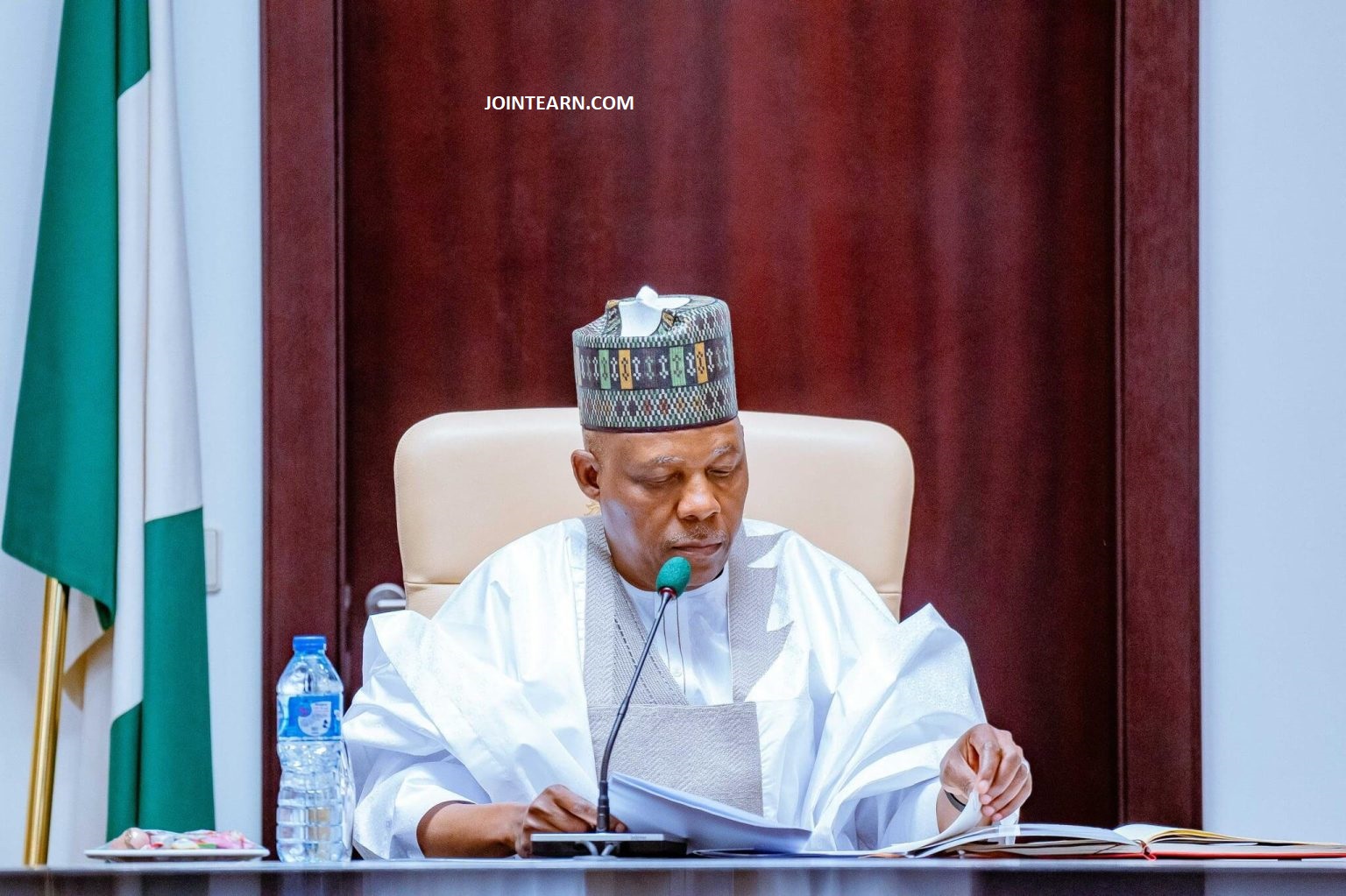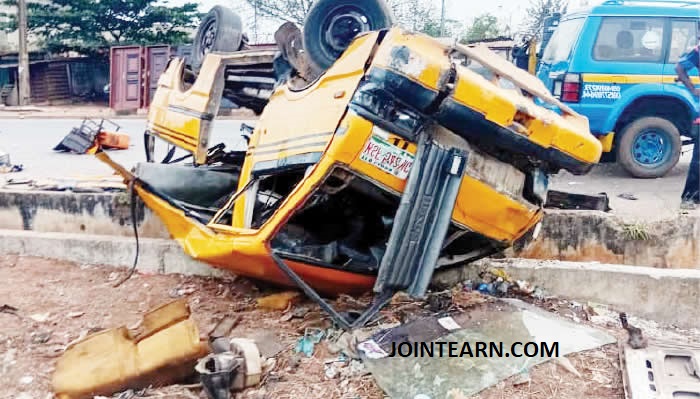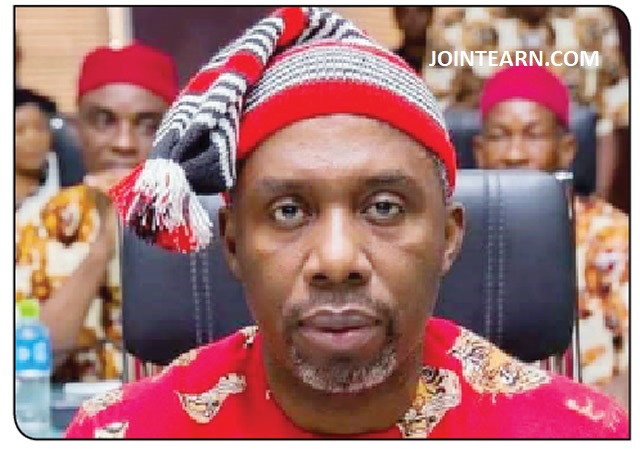The National Economic Council (NEC) has deferred a much-anticipated discussion on the establishment of state police across Nigeria, citing time constraints during its latest meeting held on Thursday at the Presidential Villa, Abuja. The decision, though procedural, has stirred reactions among advocates of state policing who view the initiative as a critical step toward improving the country’s deteriorating security architecture.
The NEC, chaired by Vice President Kashim Shettima and composed of all 36 state governors, the Central Bank Governor, ministers responsible for the economy, and other top officials, had scheduled the state police matter as part of its broader agenda on national security reform. However, according to reports from inside sources, the meeting ran over its allotted time, and the topic was consequently postponed to a later date.
High Expectations, Delayed Dialogue
The establishment of state police has remained a heated topic in Nigeria’s national discourse, with proponents arguing it is necessary to combat rising insecurity, banditry, terrorism, and violent crimes across various states. With several governors and regional leaders actively lobbying for its implementation, expectations were high ahead of Thursday’s meeting.
However, following the conclusion of the session, the Vice President’s office confirmed in a statement that discussions on the matter could not proceed due to the extensive deliberations on other pressing issues, including economic recovery plans, fiscal policy coordination, and revenue generation strategies.
“The NEC recognizes the importance and urgency of the state police discussion. However, due to time constraints and the volume of critical economic matters on the agenda, the Council agreed to defer the discussion to the next meeting,” the statement read.
It added that the Council is committed to addressing the topic with the seriousness it deserves when it reconvenes.
Calls for Decentralized Security Remain Strong
Despite the delay, several stakeholders have reiterated their support for state policing as a constitutional reform that could drastically improve localized security responses. Governors from states most affected by armed attacks and violent crimes have been particularly vocal.
Speaking to reporters after the meeting, Governor Dapo Abiodun of Ogun State expressed disappointment over the postponement but stressed that the discussion is only delayed, not dismissed.
“We understand that time was limited, but the urgency of securing our communities remains. The idea of state police is not just a political one—it’s a practical necessity. We’ll keep pushing for this conversation to happen,” Abiodun said.
Similarly, Governor Babagana Zulum of Borno State noted that local intelligence and rapid response are keys to defeating insurgency and that only decentralized security structures could offer such responsiveness.
“We can’t keep depending on a centralized structure that is overwhelmed. We need boots on the ground, led by people who understand the terrain. State policing is a step in the right direction,” Zulum said.
Civil Society Groups Voice Frustration
The postponement has also drawn reactions from civil society organizations and security reform advocates, some of whom see the delay as indicative of a lack of political will to confront Nigeria’s worsening insecurity with bold reforms.
Akin Fadeyi, Executive Director of the Akin Fadeyi Foundation, criticized the deferral as “bureaucratic dithering” in the face of an emergency.
“Every day we wait, more lives are lost to insecurity. How many more massacres, kidnappings, and attacks will it take before we start treating state policing as a priority, not an afterthought?” he asked.
He urged NEC to set a firm date for the state police deliberation and ensure that any future postponement is avoided.
Opposition Politicians Weigh In
From the opposition camp, reactions were mixed. Some described the delay as understandable, given the range of issues facing the country, while others were less forgiving.
Senator Shehu Sani, a former lawmaker and human rights activist, tweeted, “Delaying the state police discussion is like pausing a fire drill during a blaze. We don’t have the luxury of time. Insecurity is destroying rural and urban lives alike.”
On the other hand, some members of the National Assembly urged caution in the rollout of state police, citing potential for abuse by state governors, lack of adequate funding, and possible jurisdictional conflicts.
Federal Government’s Position
The federal government has previously indicated openness to the idea of state policing but emphasized that such a reform must come through constitutional amendment and national consensus.
President Bola Tinubu, while campaigning, expressed support for devolving policing powers to the states. However, implementation remains complex, requiring legislative backing, financial structuring, and a clear framework to prevent misuse.
Minister of Justice and Attorney General of the Federation, Lateef Fagbemi, had earlier proposed that a hybrid model of federal and state police could be the solution, where local law enforcement agencies would operate under strict federal oversight to avoid politicization.
What Comes Next?
According to insiders within the NEC, the discussion on state police is expected to be prioritized at the next council meeting, scheduled in the coming weeks. Meanwhile, a committee is reportedly being considered to review proposals from the Nigeria Governors’ Forum, security experts, and civil society organizations on how to implement state policing in a manner that balances security efficiency with human rights protections.
Until then, Nigeria’s security situation remains under intense scrutiny. With growing insecurity in the North-East, North-West, and even Southern states experiencing rising criminal activities, citizens continue to call for solutions beyond rhetoric.
Conclusion
While the National Economic Council’s decision to postpone the state police discussion due to time constraints may appear procedural, the stakes surrounding the issue remain exceedingly high. As citizens face relentless threats from kidnappers, terrorists, and other violent elements, the demand for security reform—including state policing—continues to grow louder.
Stakeholders, citizens, and security experts will now be watching closely to see whether the next NEC meeting will offer more than just promises—and deliver real progress on this critical issue.












